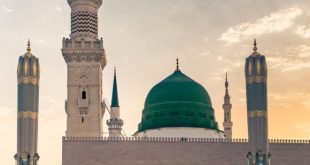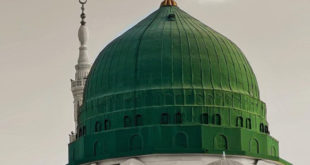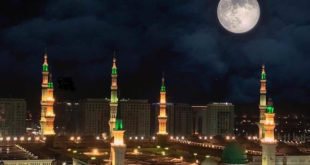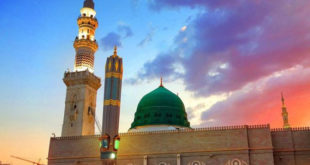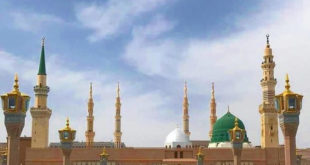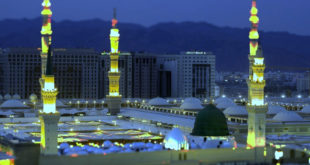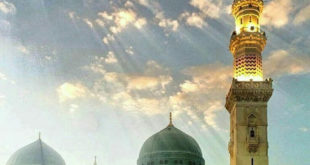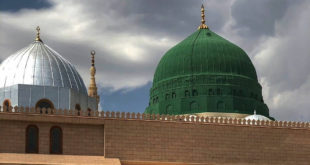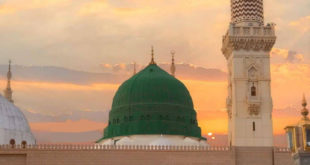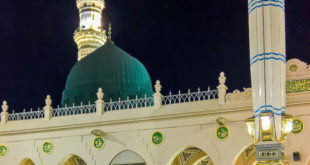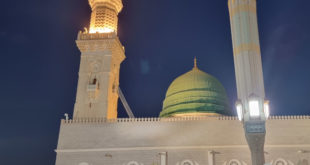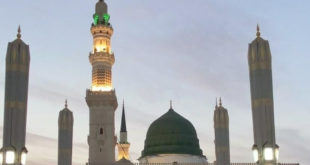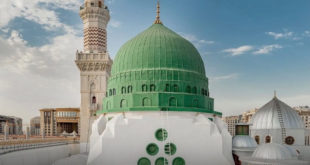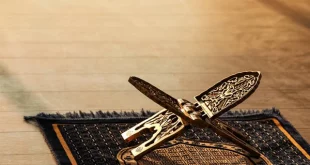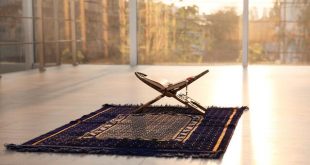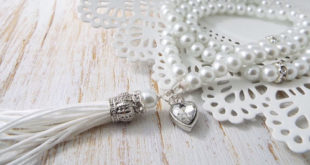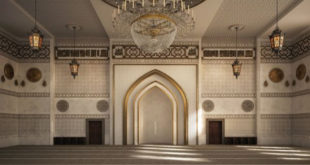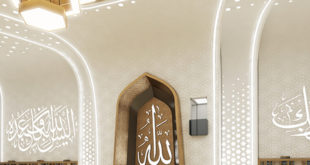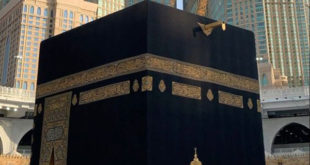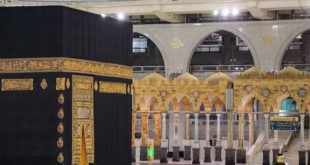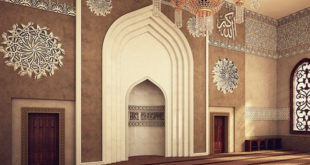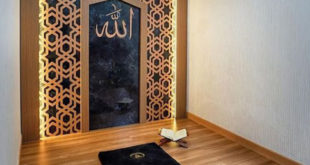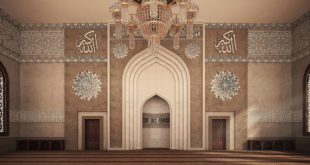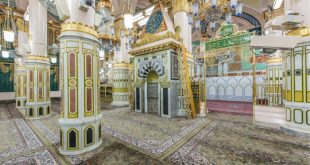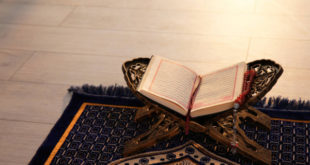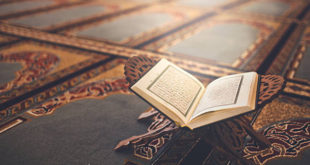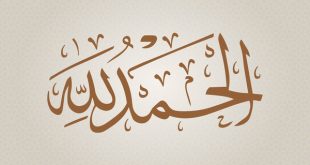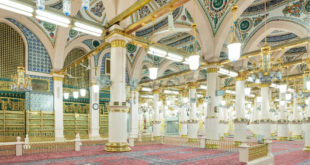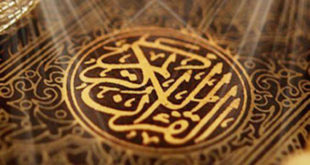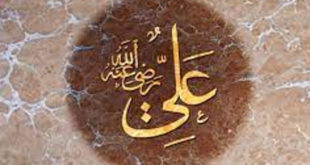Q: Is it permissible for a person to marry the daughter of a woman that he divorced before consummating the marriage? A: It is permissible. حرمت عليكم أمهاتكم وبناتكم وأخواتكم … وأمهات نسآئكم وربائبكم اللاتى فى حجوركم من نسآئكم اللاتى دخلتم بهن فإن لم تكونوا دخلتم بهن فلا جناح عليكم” …
Read More »Recent Posts
October, 2012
-
8 October
Marrying one’s ex-wife’s mother
Q: Is it permissible for one to marry his ex-wife’s mother? A: It is impermissible. حرمت عليكم أمهاتكم وبناتكم وأخواتكم … وأمهات نسآئكم وربائبكم اللاتى فى حجوركم من نسآئكم اللاتى دخلتم بهن فإن لم تكونوا دخلتم بهن فلا جناح عليكم” (سورة النساء الآية 23) و حرم المصاهرة ( بنت زوجته …
Read More » -
8 October
Marrying one’s ex-wife’s daughter (from a previous marriage)
Q: Is it permissible for one to marry his ex-wife’s daughter (from a previous marriage)? A: It is impermissible. حرمت عليكم أمهاتكم وبناتكم وأخواتكم … وأمهات نسآئكم وربائبكم اللاتى فى حجوركم من نسآئكم اللاتى دخلتم بهن فإن لم تكونوا دخلتم بهن فلا جناح عليكم” (سورة النساء الآية 23) و حرم …
Read More » -
8 October
The position of Nikaah in Islam
Q: What status does Nikaah hold in Islam? A: Nikaah is an emphasised Sunnah of Rasulullah (Sallallahu Alaihi Wasallam). Hence, if a person possesses the means to get married and is able to fulfil the obligations of Nikaah, he should get married. النكاح من سنتي (رواه ابن ماجه في سننه …
Read More » -
8 October
Janaazah salaah of a corpse that has bloated and there is fear of it disintegrating
If the corpse of the deceased bloated to such an extent that it is feared that the body will burst by touching it, then merely passing water over the body will suffice for the ghusal. The deceased will be enshrouded in the kafan in the normal manner and Janaazah Salaah …
Read More »
-
Tafseer of Surah Naazi’aat
وَ النّٰزِعٰتِ غَرۡقًا ۙ﴿۱﴾ وَّ النّٰشِطٰتِ نَشۡطًا ۙ﴿۲﴾ وَّ السّٰبِحٰتِ سَبۡحًا ۙ﴿۳﴾ فَالسّٰبِقٰتِ سَبۡقًا ۙ﴿۴﴾ …
Read More » -
The Extreme Generosity of Hazrat Talhah (radhiyallahu ‘anhu)
-
Securing the Blessings of Ramadhaan, Umrah and Hajj – The Tolerance of Rasulullah (sallallahu ‘alaihi wasallam) – The Orchards of Love – Part Seventy Three
-
Receiving the title of Al-Fayyadh from Rasulullah (sallallahu ‘alaihi wasallam)
-
Hazrat Talhah (radhiyallahu ‘anhu) Fulfilling his Pledge
-
Receiving Seventy Rewards
Hazrat Abdullah bin Amr bin Aas (radhiyallahu ‘anhuma) reported, “Whoever sends salutations upon Nabi (sallallahu ‘alaihi wasallam) once, Allah Ta‘ala and His angels will send seventy mercies and blessings upon him in return of his one Durood. Hence, whoever wishes to increase his Durood should increase it, and whoever wishes to decrease his Durood should decrease it (i.e. if he wants to earn great rewards, then he should increase his Durood).”
Read More » -
Increase in Sustenance
-
The Reward of Fasting on the Day of Arafah
-
The Angel that Stands at the Blessed Grave of Hazrat Rasulullah (sallallahu ‘alaihi wasallam) to Convey the Durood of the Ummah
-
Reciting Durood when Entering the Musjid
-
Sunnats and Aadaab of the Host – 2
2. Entertaining and hosting guests is a means of attaining great barakah (blessings) from Allah …
Read More » -
Sunnats and Aadaab of the Host – 1
-
Sunnats and Aadaab which every person needs to adhere to in his individual life – 9
-
Sunnats and Aadaab which every person needs to adhere to in his individual life – 8
-
Sunnats and Aadaab which every person needs to adhere to in his individual life – 7
-
Hazrat Ali (radhiyallahu ‘anhu) – Part Forty-One – Being Sent by Rasulullah (sallallahu ‘alaihi wasallam) to Level the Graves, Destroy Idols and Erase Pictures
Hazrat Ali (radhiyallahu ‘anhu) reports that on one occasion, Rasulullah (sallallahu ‘alaihi wasallam) attended a …
Read More » -
Rasulullah (sallallahu ‘alaihi wasallam) Approving of the Verdict of Hazrat Ali (radhiyallahu ‘anhu) – Part Forty
-
The True Ulamaa – Hazrat Ali (radhiyallahu ‘anhu) – Part Thirty Nine
-
Du‘aa for Assistance in Settling Debts – Hazrat Ali (radhiyallahu ‘anhu) – Part Thirty Eight
-
The Concern of Hazrat Ali (radhiyallahu ‘anhu) regarding Business being Conducted According to the Islamic Principles – Part Thirty Seven
 Ihyaaud Deen An Effort to Revive Deen in Totality
Ihyaaud Deen An Effort to Revive Deen in Totality
























